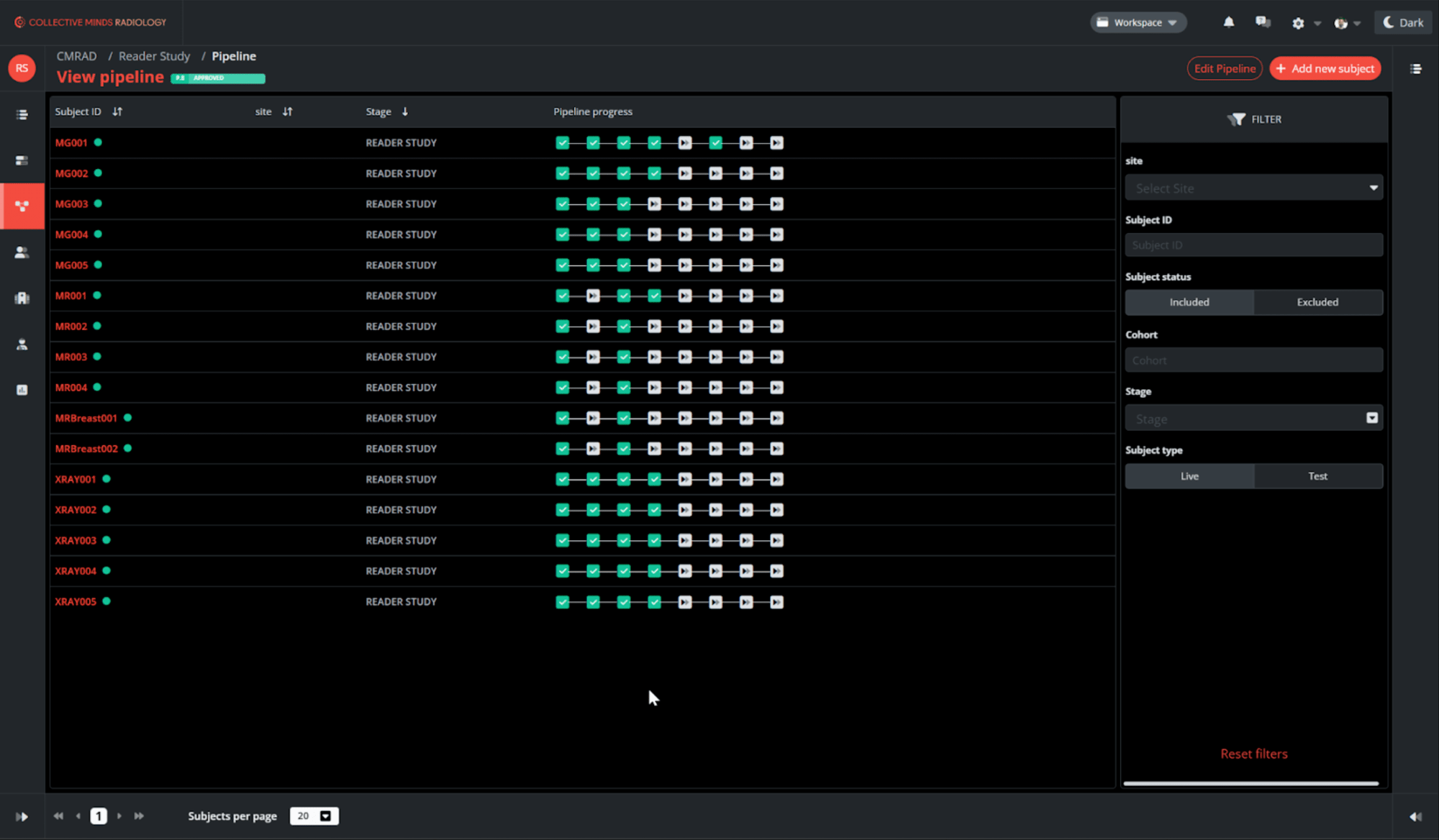Streamline Your Clinical Trials With Imaging Endpoints Using Automated Data Collection

Automated data collection, particularly in the realm of imaging endpoints, significantly streamlines clinical trials by enhancing efficiency and accuracy. This technology minimizes human error and variability in data interpretation, ensuring consistent results across studies. It accelerates the process of gathering and analyzing complex imaging data, enabling quicker decision-making and progress through trial phases. Furthermore, automation facilitates real-time monitoring and adjustments, optimizing trial outcomes while reducing time and cost investments.
Imaging Endpoints
In clinical trials, imaging endpoints serve as crucial objective measures for evaluating treatment efficacy and disease progression. These specialized metrics utilize medical imaging data to provide quantifiable evidence of therapeutic outcomes, offering researchers and clinicians valuable insights that go beyond traditional clinical assessments. From tracking tumor response in oncology studies to measuring structural changes in neurological conditions, imaging endpoints have become indispensable tools in modern clinical research, providing accurate, reproducible, and unbiased data that can make or break a trial's success.
Rebeca Sanz Barriuso puts it,
"Imaging technologies offer powerful insights into the distribution, binding, and biological effects of pharmaceuticals. According to the FDA's Medical Imaging and Drug Development resource, these technologies contribute important biomarkers and surrogate endpoints."
Leveraging Technology For Efficient Data Collection In Clinical Trials
Leveraging technology for efficient data collection in clinical trials, particularly when dealing with medical imaging, represents a significant advancement in medical research. Automated data collection systems streamline the process, enhancing accuracy and reliability while reducing human error. These technologies facilitate real-time monitoring and analysis of patient data and images, enabling quicker adjustments to study parameters and protocol errors. Moreover, automation increases the scalability of trials, allowing for broader participant inclusion without compromising data integrity.
This efficiency not only accelerates the trial timeline but also optimizes resource allocation.
Read Also: Collective Minds Connect: Seamless, Secure, and Efficient Medical Imaging Data Transfer
Importance Of Quality Assurance And Regulatory Compliance
In clinical trials, the integrity of the imaging data and therefore the resulting imaging endpoints is paramount. Quality assurance ensures that data collected are accurate, reliable, and reproducible, which is crucial for drawing valid conclusions about a drug's efficacy and safety. Meanwhile, regulatory compliance guarantees that these trials meet stringent standards set by health authorities, ensuring participant safety and data integrity. Adhering to these principles not only facilitates regulatory approval but also builds trust in the trial's findings among stakeholders and the broader medical community.
Implementing Workflow Optimization And Remote Monitoring For Efficient Image Management
Incorporating workflow optimization and remote monitoring into clinical trials enhances efficient image management, pivotal for streamlining processes. By leveraging automated data collection tools, researchers can seamlessly capture, store, and analyze imaging endpoints, reducing manual errors and saving significant time. Remote monitoring capabilities further empower teams to oversee trial progress in real time, ensuring that imaging data integrity is maintained throughout. This technological integration not only accelerates the trial timeline but also ensures high-quality data collection, crucial for successful outcomes.
Optimizing Multicenter Studies With Centralized Image Review
Optimizing multicenter studies through centralized image review is pivotal in streamlining clinical trials. By adopting a unified platform for image analysis, researchers can ensure consistency and accuracy across various sites. This approach not only minimizes variability but also enhances the reliability of data, facilitating a smoother regulatory submission process. Centralized review supports real-time decision-making and accelerates study timelines by enabling immediate identification and correction of any discrepancies in imaging data collection or interpretation.
Read Also: Best Practices for Multi-Centric, Multi-Modal Clinical Trials with Imaging Endpoints
Ensuring Blinded Assessments For Data Integrity In Imaging Endpoints
Ensuring blinded assessments in imaging endpoints is crucial for maintaining data integrity in clinical trials. This process involves concealing the treatment allocation from those interpreting imaging results, thereby preventing bias. Automation plays a key role by systematically randomizing and anonymizing image data before analysis. Such measures ensure that evaluations are based solely on objective criteria, enhancing the credibility of the findings.
Consequently, this meticulous approach upholds the scientific validity of the trial outcomes, fostering trust in the resulting data.
Secure Image Storage And Sharing Practices For Regulatory Compliance
Ensuring secure image storage and sharing practices is pivotal for regulatory compliance in clinical trials utilizing imaging endpoints. Automated data collection systems must incorporate robust encryption for both at-rest and in-transit images to safeguard patient confidentiality. Additionally, access controls are crucial, limiting data accessibility to authorized personnel only. Compliance with standards such as HIPAA in the U.S., or GDPR in Europe, requires meticulous auditing trails that record every access and alteration of the imaging data, ensuring traceability and accountability throughout the trial's lifecycle.
Read Also: Data Protection and Security
The Role Of Imaging Core Labs In Streamlining Clinical Trial Processes
Imaging Core Labs play a crucial role in streamlining clinical trial processes by centralizing and standardizing the acquisition, analysis, and interpretation of imaging data. This specialized function leverages advanced technology to automate data collection, ensuring accuracy, consistency, and compliance with regulatory standards. By facilitating seamless integration of imaging endpoints, the core labs significantly expedite trial timelines, enhance data quality, and reduce operational complexities.
Their expertise enables sponsors to navigate the intricate landscape of clinical imaging efficiently, optimizing trial outcomes.
Reviewed by: Anders Nordell on November 16, 2024




